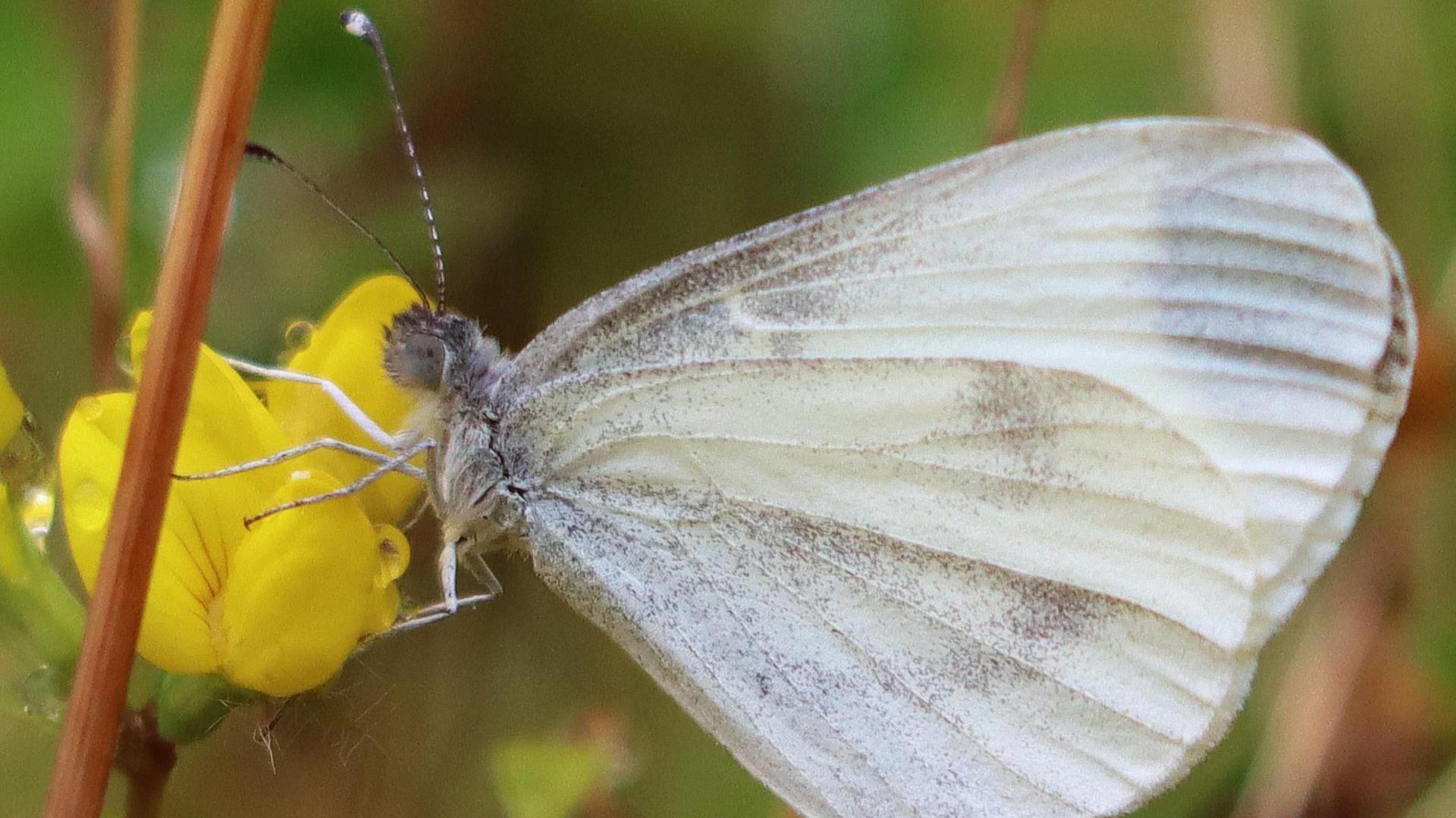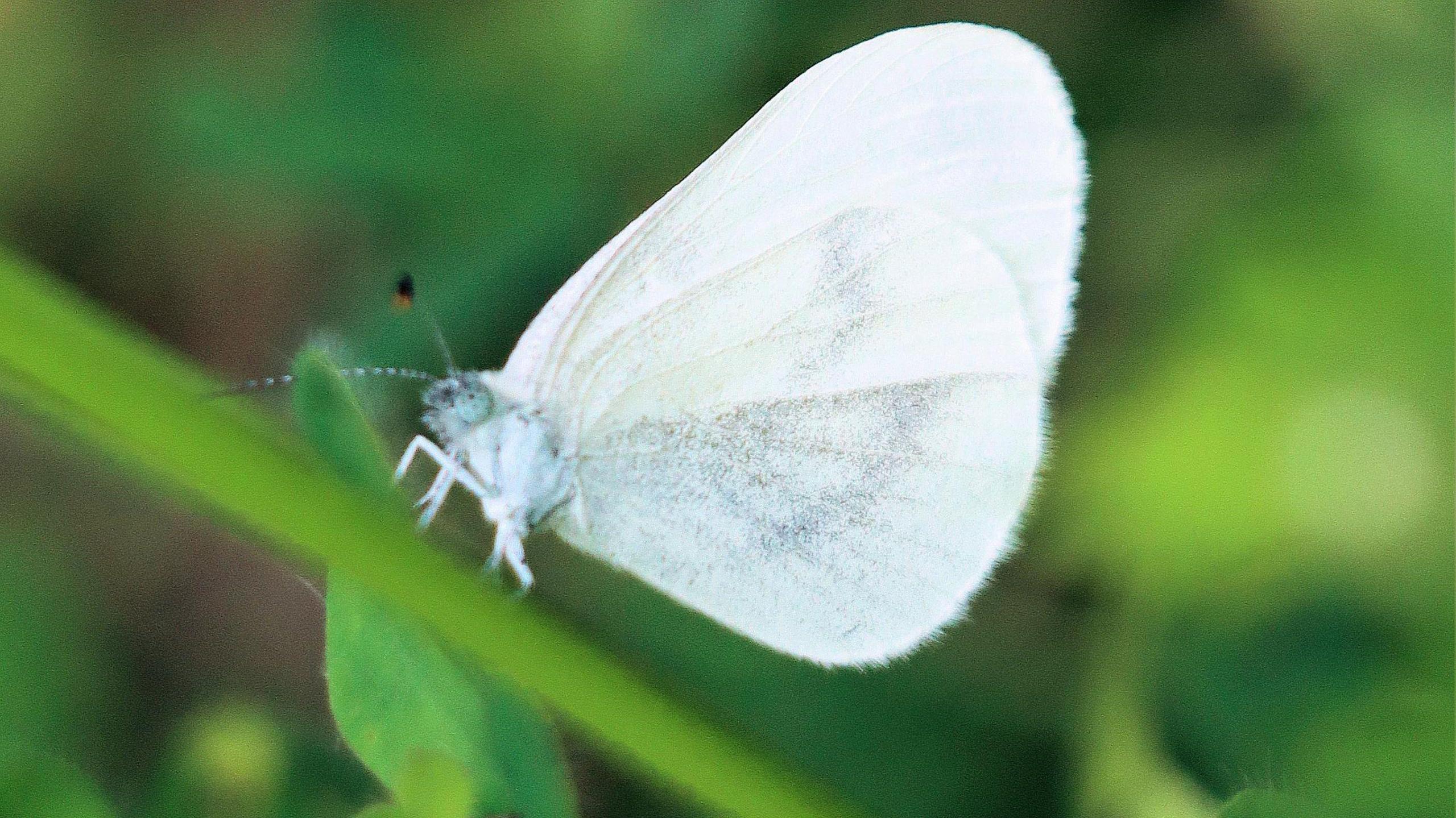Rare butterfly returns after decades-long absence

The Wood White is considered one of the rarest in the UK and is classed as an endangered species
- Published
One of the rarest butterflies in the UK has returned to Wales, decades after last being seen in the country.
The endangered Wood White, known for its delicate cream colour and striped antennae, was recorded at four sites in Powys by the Butterfly Conservation, including a female laying eggs.
The species used to have a permanent colony in south-east Wales but died out several decades ago due to a destruction of habitat, with only some "sporadic sightings" since.
Butterfly Conservation said butterflies had suffered in recent years "because of human actions" but now there was new hope for conservationists, with a "real success story" in the new species in Wales.
New hope for rare rodent after forest find
- Published15 November 2024
Hopes for water voles as new colonies discovered
- Published14 February
First rare bumblebee spotted at nature reserve
- Published6 August
Since 1979, the species' abundance has decreased by 82% at its few remaining sites.
Butterfly Conservation said the new arrivals "almost certainly" come from sites just over the border in Shropshire, where targeted conservation work has been ongoing to maintain Wood White populations.
The charity said its conservation team saw at least four individuals, including a female laying eggs, at Natural Resources Wales (NRW) sites at Siercwm.
Volunteers now plan to do further surveys next spring and are in contact with NRW to discuss managing roadside verges along forestry plantation roads.

Normally found flying slowly in woodland from May to August, it is the first sighting in Wales in decades
The news comes after a host of "surprising butterfly and moth activity", the charity said, much of it linked to this year's record-breaking weather.
Butterfly Conservation have recorded 18 species of butterfly emerging at least two weeks earlier than average, with a further 24 species at least a week early.
However, Dr Dan Hoare, Butterfly Conservation director of nature recovery, said while the charity loved to see butterflies and moths doing well in the UK, there were "going to be winners and losers from the very rapid climate change we're experiencing".
Dr Hoare added: "One way we can increase the number of climate winners is by managing habitats positively so that threatened species can benefit as well as widespread mobile species.
"That means creating and maintaining good quality, connected habitat at a landscape scale, which Butterfly Conservation has been doing for years and will continue to do."